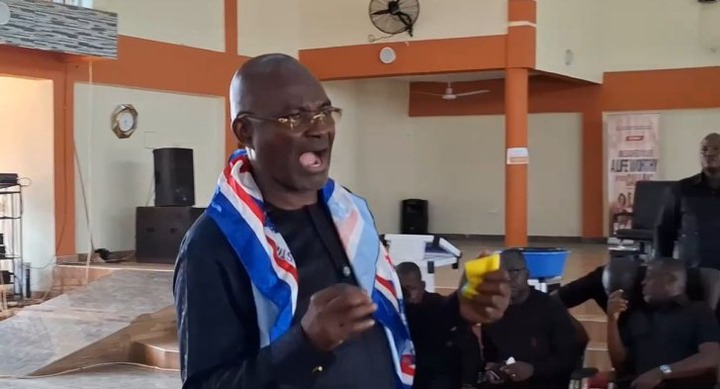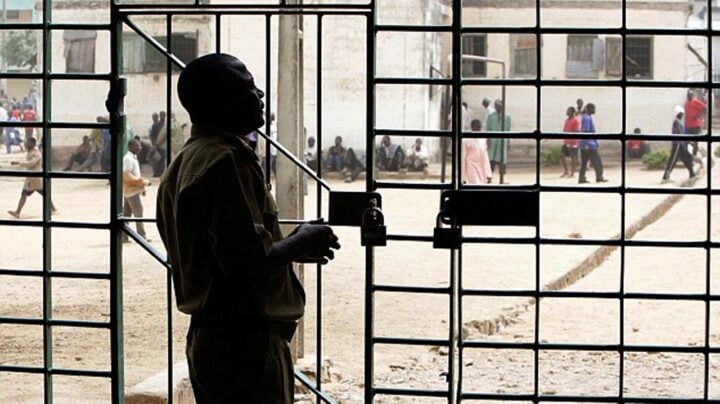Africa: Trump Resurrects Full Travel Ban Against 12 Global South Countries - allAfrica.com
Trump's latest travel ban restricts travel from 12 countries and limits travel from seven others
Donald Trump has resurrected (and expanded) one of his most controversial first-term policies: a travel ban on several Global South countries. In a proclamation announced on June 4 that goes into effect on June 9, the president barred travel into the United States for citizens from Afghanistan, Myanmar, Chad, the Republic of Congo, Equatorial Guinea, Eritrea, Haiti, Iran, Libya, Somalia, Sudan and Yemen. Trump imposed some restrictions on travel, but stopped short of fully barring travel from the following countries, in what has been called a "partial ban": Burundi, Cuba, Laos, Sierra Leone, Togo, Turkmenistan and Venezuela. This means that people from those countries cannot come to the US permanently or obtain travel or student visas.
According to the text of the proclamation, the intent of this newest policy is to "protect its citizens from aliens who intend to commit terrorist attacks, threaten our national security, espouse hateful ideology, or otherwise exploit the immigration laws for malevolent purposes."
In a social media video, Trump referenced the attack on a pro-Israel solidarity walk in Boulder, Colorado, as a key reason behind the implementation of the travel ban. Trump stated that the attack "underscored the extreme dangers posed to our country by the entry of foreign nationals who are not properly vetted, as well as those who come here as temporary visitors and overstay their visas." However, the perpetrator of the attack is originally from Egypt, a country that is not included in this latest ban.
Last year, the US State Department issued around 170,000 visas from the 12 countries on the travel ban list.
While some countries on the new travel ban list have been sanctioned by the US many times before, such as Iran, Cuba, and Venezuela, some of the nations included seem to reflect specific aspects of Trump's agenda in his second term.
The inclusion of Afghanistan in the travel ban has worried many Afghans who worked for the US government during its 20-year-long invasion of the Asian nation, and are now in hiding from the Taliban. Trump had already suspended refugee resettlement, including for Afghans, on his first day in office.
Trump's proclamation states that the Taliban, a "Specially Designated Global Terrorist (SDGT) group," controls Afghanistan. Therefore, the country lacks a "competent or cooperative central authority for issuing passports or civil documents." The proclamation also referenced the visa overstay rate of Afghan citizens in the US.
Trump also referenced the visa overstay rate of Myanmar, referred to as "Burma" in the proclamation.
The proclamation claims that citizens traveling to the US from Chad have a high visa overstay rate, which according to the administration "indicates a blatant disregard for United States immigration laws." The President of Chad, Idriss Deby, wrote on Facebook on Thursday, "Chad has no planes to offer, no billions of dollars to give but Chad has his dignity and pride," referring to the plane that the government of Qatar gifted the Trump administration during Trump's visit to the region.
The Republic of the Congo, west of the neighboring Democratic Republic of the Congo, was included in Trump's ban list, also due to its visa overstay rate. As were Eritrea, Sudan, and Equatorial Guinea. Trump's proclamation also accused Eritrea, Libya, Somalia, and Sudan of lacking a competent central authority to issue passports and documents.
The proclamation lists Yemen as a "site of active United States military operations," and accuses Yemen's government of not having "physical control over its own territory." Indeed, throughout Trump's short time in office for his second term, his administration has launched numerous strikes against Yemen.
Although the Biden administration was notoriously also hostile to Haitian migrants, Haiti has been a special target of the second Trump administration, as Trump himself as well as Vice President JD Vance spread rumors on the campaign trail that Haitian migrants were eating the pets of residents of Springfield, Ohio. According to Trump's June 4 proclamation, migration from Haiti during the Biden administration creates risks of "increased overstay rates, establishment of criminal networks, and other national security threats."
Trump's proclamation accuses Iran of being a "state sponsor of terrorism," referencing the US State Department's list of State Sponsors of Terrorism (SSOT).
This proclamation comes as Iran and the US are involved in high-stakes negotiations around Iran's nuclear program. A deal between the two countries could potentially ease crushing US sanctions against Iran.
"Trump's first bans impacted more than a hundred thousand Iranians, and visa processing has never fully recovered," said Jamal Abdi, the president of the National Iranian American Council's (NIAC). "The return of the ban will not make America safer, but it will deeply harm the countless Americans, including in the Iranian-American community, whose loved ones will be arbitrarily denied visas or experience racial profiling and discrimination at ports of entry based on their heritage. National origin tells us nothing about whether an individual is a terrorist threat. Yet, that is precisely what Trump's bans have been based on."
The countries included in the partial ban list include Burundi, Cuba, Laos, Sierra Leone, Togo, Turkmenistan and Venezuela. In the proclamation, Trump once again accuses Cuba of being a "state sponsor of terrorism."
With this latest proclamation, Trump has effectively resurrected one of his most controversial policies of his first term, what critics dubbed the "Muslim ban," a 2017 executive order in which Trump temporarily banned travel from seven Muslim-majority countries: Iran, Iraq, Libya, Somalia, Sudan, Syria and Yemen. The ban was technically temporary. The ban ignited mass spontaneous protests at airports across the country, beginning after several people were detained at airports after entering the United States.

Sign up for free AllAfrica Newsletters
Get the latest in African news delivered straight to your inbox
At the height of the protest movement, more than 2,000 people gathered at John F. Kennedy International Airport in Queens, New York City on January 28, 2017, chanting "Let them in!"
Trump's first travel ban was swiftly blocked by a court, and after numerous revisions, and legal challenges, the Supreme Court finally upheld the travel ban in 2018. The iteration that the Supreme Court upheld expanded the list of prohibited countries beyond Muslim-majority nations, adding North Korean travelers as well as Venezuelan officials. Biden later reversed this travel ban altogether upon taking office as the 46th president.
Immigrant rights activists have wholeheartedly denounced the latest ban with accusations of discrimination.
"The announcement comes the day before Eid, a holy time for our communities," said Mousa Naji with the Council for American Islamic Relations (CAIR) New Jersey. "It is a direct attack on our communities and criminalizes people for seeking connection and refuge and erases the dignity of Muslim communities who are integral to this nation's fabric."
"A fundamental principle of our democracy is that every individual has a right to be judged on their own merits, and not on what they look like or where they come from," said Amber Reed with Asian Americans and Pacific Islanders of New Jersey (AAPINJ). "This travel ban will join other harshly judged missteps in American history, like the Chinese Exclusion Act and Japanese American incarceration during World War II, that have violated this core value."












